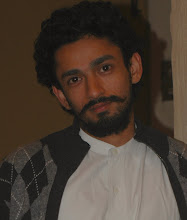25 June 2009
News runs on clichés. Oft repeated ones like “the million dollar question is whether the budget will xyz” or “Only time will tell whether or not xyz” or “We have to wait and watch whether the budget xyz” or “But good economics does not make good politics as XYZ..”etc.
Clichés are great, they’re good shorthand and they also allow one to say something without saying anything at all, a safe non-committal kind of nothing statement. It’s a necessary requirement for popular media these days. But the last one is the most used on the eve of the budget and is not just a nothing statement, it’s actually misleading. It suggests that it’s desirable or necessary for good politics to be good economics.
Many modern day “good economics” proponents will tell you that taxes and tariffs are bad. They restrict free trade and make a system inefficient. That is if one looks at ledgers and costs and profits and losses. They divert resources to purchase inefficient goods and overall push down an economies standard of living. However consider this, if a nation allows kids to be used for labour, or if there is no concept of a minimum wage or decent working conditions. In an extreme case there is forced labour or working by prisoners like there is in some nations. Or if a nation makes military training compulsory for all – all this effects the demand and supply and prices for goods and services from laying pipelines to making firecrackers to military equipment and uniforms. Should there be restrictive trade barriers by way of taxes and levies depending on working conditions, rights to unionize etc? These are really simple examples taken for the sake of clarity. Things get way more complex than this if one wants to dissect many cases of levies. Kids or prisoners working in sub human conditions is not an economic decision its about a value system. The parameters that decide how and to whom cheap and easy credit should me made available too stems from a value system. Letting crackers be made and sold cheap from factories in Sivakasi is good economics. But is it good politics? Economics measure efficiencies in rather simple ways. Some try harder and include health care costs that are a by-product of working conditions, some go further and include other externalities. Basically one can include any thing and exclude anything you like depending on the outcome you want. Now for politics. Politics is a much larger canvas. Economics is just one small aspect of that painting. Politics is about governance. Governance is about people and value systems of nations and societies. That’s why political parties are so steeped in ideology one way or another. That’s the ultimate parameter to visualize their politics and thus their governance.
So of course good economics can almost never be good politics in the simple ways we try to make it so. Trying to confine t in that space is taking on a task way beyond its scope, it’s undesirable and wholly inadequate.
All economics gives us are certain indicators that are quantifiable and can be drawn on a chart. These one can choose to use or ignore and may or may not have any major impact on larger decisions. And after the ways in which recent history has demonstrated the accuracy of economic models, one needs to put that exercise in perspective.
There’s the old story of Akbar and Birbal where Akbar asks Birbal to round up the seven most foolish men in his kingdom. Out of the five Birbal rounds up (Akbar and Birbal being the final two. The king for asking for such a search and his trusted minister for carrying it out). One of Birbal’s discovery is a man looking for a ring under a lamp post (lit with kerosene back then I’m assuming). So Birbal asks him what he’s looking for. The man says he lost his ring behind the bushes some distance away from the lamp-post. So Birbal asks him why he’s looking here under the lamp and not where he lost the ring. “Because it’s dark back there and I cant see a thing so I figured I’d look where there is light.” was the answer that qualified the man in Birbal’s list. So while the exercise was futile, at least the man felt he was doing something, an honest attempt by one with intent and energy but not much by way of foresight or vision.
So if this “Good Economics Good Politics” is a discussion or debate for a feel good factor, a sort of intellectual exercise of presentations and trickery, that’s just fine. Like a performance or a sit-com that keeps you interested, makes one smile, applaud and often be impressed by various skills. But that’s not where one will find the lost ring. So will we abandon the Good economics Vs Good politics line and start using another cliché on budgets and policy decisions? That’s a million dollar question which only time will tell as we have to wait and watch… etc.

No comments:
Post a Comment